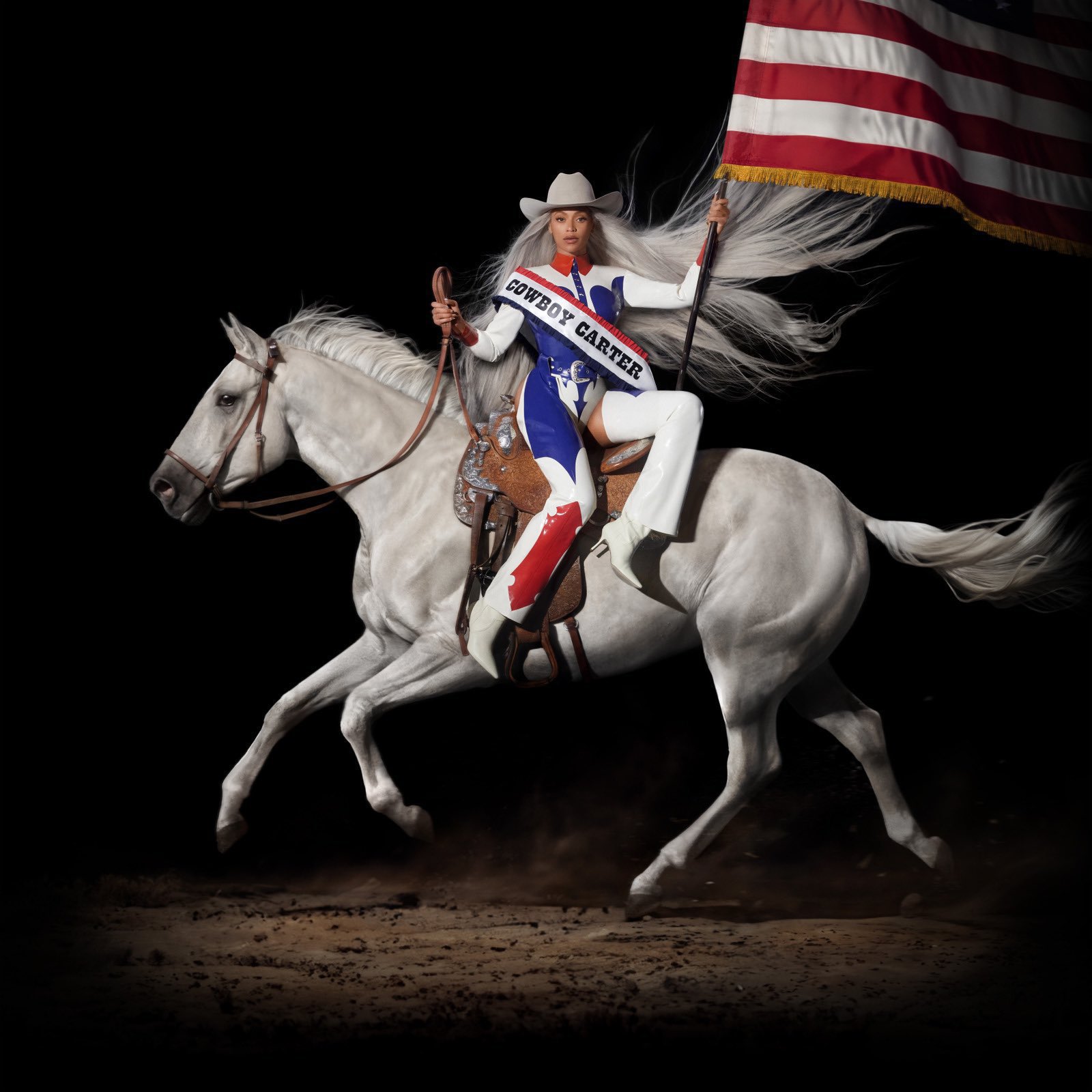
Beyoncé Takes a Stand Against AI in Music with ‘Cowboy Carter’ Album

Beyoncé’s latest album, Cowboy Carter, has sparked conversations because of its record-breaking success and Beyoncé’s vocal stance against the growing presence of artificial intelligence (AI) in music production. In a rare interview, Beyoncé emphasised the importance of using real instruments in music creation, expressing concern over AI’s ability to replicate artists’ voices and compositions without consent.
The backlash against AI-generated art stems from ethical concerns surrounding its reliance on copyrighted material, often used without permission from the original artists. This controversy has led to resignations, such as Stability AI’s VP of Audio, Ed Newton-Rex, who disagreed with the company’s approach to using copyrighted works.
Beyoncé’s stance against AI aligns with the themes of “Cowboy Carter,” which explored the appropriation of black music in the country genre. The album sheds light on the historical contributions of black musicians to country music while addressing ongoing exclusion and appropriation within the industry.
Through her music and public statements, Beyoncé highlighted the importance of artists retaining control over their work and receiving proper credit and compensation. The album’s collaborations with country icon Willie Nelson added depth to its commentary on cultural appropriation, particularly in light of recent incidents such as an Oklahoma radio station’s refusal to play Beyoncé’s music.
Cowboy Carter represents Beyoncé’s vision of a world where artists are respected for their cultural contributions and have autonomy over their creative output. By taking a stand against AI and advocating for artistic integrity, Beyoncé continues to be a trailblazer in the music industry, using her platform to address pressing issues and advocating for change.
About The Author
Related Articles
Nnamdi Kanaga’s “Water Girl” and the New Wave of Mythmaking in Nigerian Cinema
The crackle of a Montana winter seems worlds away from the humid...
ByIkenna ChurchillJuly 17, 2025Davido And Shallipopi Light Up Portugal As Afro Nation 2025 Kicks Off With Energy, Culture, and Family Moments
Afro Nation 2025 opened with a powerful celebration of African music in...
ByChinalurumogu EzeJuly 12, 2025“When Nigeria Happens” To Shine At Locarno Film Festival 2025, Opening Doors For African Stories
Nigerian filmmaker Ema Edosio is set to make a global splash as...
ByChinalurumogu EzeJuly 11, 2025How Nigeria Can Champion a New Era of Creative Recognition in Africa
Nigeria’s creative industry has become one of its most recognisable exports. From...
ByIkenna ChurchillJuly 8, 2025











